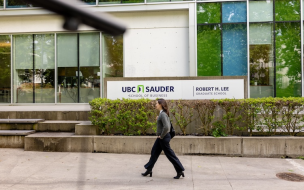South Africa becomes the first World Cup host nation in the history of football unable to qualify for the second round. But hey, sporting glory was never the focus of the beautiful country this time around.
The nation successfully hosted the 1994 rugby World Cup, which has been portrayed in a recent feature film Invictus, when Nelson Mandela was President.
Springboks, as the South Africa rugby team is known, won the tournament in a way that not only brought different races together, but also served as a catalyst for the unification of the county.
Sixteen years later, it’s the turn of the South African football team, Bafana Bafana, to inspire a country that is again struggling with problems and conflicts between the whites and the blacks.
It is also the first major sporting event since the global financial downturn began. Many have hoped that the beautiful game can bring some much-needed distraction this summer.
Worryingly, attendance-wise, this World Cup could go down one of the worst in history. I am sure you’ve seen plenty of empty seats on TV and wished you were there.
However, many South Africans have complained that the government set the prices so high they couldn’t afford any tickets.
As a journalist, I had to confirm. So I Facebooked my friends (a white couple living in Grahamstown) and they replied saying the World Cup is priced for “international earners” and not for “hard-working domestic people” like them.
One of my journalist friends at the BBC World Service told me that the South African government failed to fulfil their promises of paying the match-day securities officers, translators and volunteers. Many of them were lucky to get half the money that they were promised before.
So can South Africa’s economy benefit from the first World Cup since the global financial crisis? I turned to business school students and experts to find out.
“I think the World Cup will end up hurting South Africa,” says 28-year-old Anthony DeAngelis, who was born in Long Island, NY. “South Africa has a lot of issues that must be resolved before it can take that next step …
“If you look at past Olympics, large sporting events, you see a huge injection from the event and then a ‘hangover’ once it leaves.”
Though government officials never openly admit it, it’s often estimated that the cost of investing in infrastructure in a bid to host the World Cup or Olympic Games is rarely matched by its commercial and economic revenues.
But hosting a major sporting event is an investment in the future, argues Lisa Delpy Neirotti, an Associate Professor of Tourism and Sports Management at the George Washington School of Business.
The World Cup will bring intangible benefits more than direct economic gains, says Neirotti.
“The millions of media images from official broadcasts to social media will bring South Africa to top of mind in terms of future vacation planning and even international business expansion,” she says.
“New infrastructure such as renovated or new airports as well as the Gau train from the Johannesburg airport to Sandton is also a benefit.
“The World Cup has also strengthened the credibility of South Africa to host other international events.”
The hundreds of World Cup commercial sponsors are also doing their bit to help the country’s social programs. Professor Neirotti says one such program is the Ticket Fund where each sponsor distributes up to 20,000 match tickets to disadvantaged youth - typically connected with an educational program.
Also, with World Cup fans buying out Vodafone SIM cards in South Africa, there seems to be signs of a pick-up in the telecommunications industry.
But Villanova’s DeAngelis disagrees: “I think the World Cup is a distraction [from current global problems], albeit a much needed one. There are still many hurdles and challenges the world economy must see.”
So how far can Bafana Bafana take South Africa in the country, and perhaps the world’s economic rehabilitation? I haven’t made up my mind yet. History will tell its own tale, but whatever happens Brazil, another rising developing nation and the host of the 2014 World Cup will have a decent case study in four years time.
Sunny Li, former staff writer at BusinessBecause.com, is a football journalist at CuJu8.com, the English Premier League's official broadcast partner in China. He also commentates football matches for IMG .
RECAPTHA :
80
02
b1
bb







